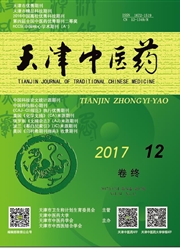

 中文摘要:
中文摘要:
脂联素(Adiponection)是一种最丰富的由脂肪细胞分泌的脂肪因子。它约占总血浆蛋白0.05%。人脂联素基因位于染色体3 q27,轨迹与糖尿病和心血管疾病的易感性接近。人体内的脂联素由247个氨基酸组成,分子量为30KD。由氨基末端的分泌信号序列(aa 1-18),一段特异序列(aa 19-41),一组由22个氨基酸组成的胶原重复序列(aa 42-107),一段球状序列(aa108-244)组成。1996年国外学者Scherer和Hu等从脂肪细胞分化克隆而发现。对人体的研究发现,脂联素水平能预示2型糖尿病和冠心病的发展,并在临床试验表现出抗糖尿病、抗动脉粥样和炎症的潜力。本文将对脂联素与胰岛素抵抗、2型糖尿病及炎症的相关研究进行综述。
 英文摘要:
英文摘要:
Adiponectin is one of the most abundant fat secreted by fat cells factor. It accounts for about 0.05% of the total plasma proteins. Human adiponectin gene is located on chromosome 3 q27, and susceptibility locus close to diabetes and cardiovascular disease. Adiponectin in humans by 247 amino acids, molecular weight of 30KD. Secretory signal sequence from the amino terminus (aa 1-18), some specific sequence (aa19-41), a group of 22 amino acids from the collagen repeats (aa 42-107), some globular sequence (aa108-244) components. 1996 Scherer and foreign scholars from Hu et al discovered adipocyte differentiation clone. Research findings on the human body, adiponectin levels can predict the development of type Ⅱ diabetes and coronary heart disease, and clinical trials showed anti-diabetic, anti- atherogenic and inflammatory potential. This paper will adiponectin and insulin resistance, type 2 diabetes and inflammation related research were reviewed.
 同期刊论文项目
同期刊论文项目
 同项目期刊论文
同项目期刊论文
 期刊信息
期刊信息
